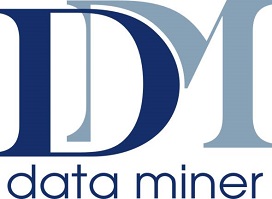About this course
This course provides comprehensive first-level training for anyone involved in software testing. It is accredited by the British Computer Society (BCS), and follows the CTFL 2018 syllabus specified by the International Software Testing Qualification Board (ISTQB). The course covers the fundamentals of testing: definitions of testing standards, planning, managing the lifecycle, reviews and the tools available. Techniques for creating tests are described and practised.
Audience profile
- The 2018 Foundation Level qualification is suitable for anyone who needs to demonstrate practical knowledge of the fundamental concepts of software testing including people in roles such as testers, test analysts, test engineers, test consultants, test managers, user acceptance testers and software developers
- It is also appropriate for individuals who need a basic understanding of software testing including project managers, quality managers, software development managers, business analysts, IT directors and management consultants
- The new 2018 syllabus is recognised as a pre-requisite to other ISTQB® certifications where Foundation Level is required (note: all previous releases of Foundation Level, including the 2011 syllabus and “grandfathered” Foundation Level certifications, will remain valid)
At course completion
The Business Outcomes expected of a candidate who has attended the 2018 Foundation Level certification course are as follows:
- Promote efficient and effective communication by using a common vocabulary for software testing
- Understand fundamental concepts of software testing
- Demonstrate understanding of how different development and testing practices, and different constraints on testing, may apply in optimising testing to different contexts
- Contribute effectively in reviews
- Use established techniques for designing tests at all test levels
- Interpret and execute tests from given test specifications. Report on test results
- Understand test management principles for resources, strategies, planning, project control and risk management
- Write and communicate clear and understandable defect reports
- Understand the project factors that drive the test priorities and test approach
- Understand the value that software testing brings to stakeholders
- Appreciate how testing activities and work products align with project objectives, measures and targets
- Assist in the selection and implementation process of testing tool
Examination
- The examination consists of a one hour exam with 40 multiple choice questions
- It will be a ‘closed book’ examination i.e. no notes or books will be allowed into the examination room
- Duration of 60 minutes (or 75 minutes for candidates taking examinations that are not in their native language)
- No study material or electronic devices (including mobile phones) may be used during the examination Candidates are allowed to use simple non-programmable calculators (to be provided by the candidate)
- An official translation of terms (not their definitions) from the ISTQB Glossary to the local language is allowed. Candidates taking exams that are not in their native language may use a paper-based translation dictionary
- The pass mark is 65% (26 out of 40)
The 2018 Foundation Level Syllabus covers the following:
Fundamentals of Testing
- What is Testing?
- Why is Testing Necessary?
- Seven Testing Principles
- Test Process
- The Psychology of Testing
Testing Throughout the Software Development Lifecycle
- Software Development Lifecycle Models
- Test Levels
- Test Types
- Maintenance Testing
Static Testing
- Static Testing Basics
- Review Process
Test Techniques
- Categories of Test Techniques
- Black-box Test Techniques
- White-box Test Techniques
- Experience-based Test Techniques
Test Management
- Test Organization
- Test Planning and Estimation
- Test Monitoring and Control
- Configuration Management
- Risks and Testing
- Defect Management
Tool Support for Testing
- Test tool considerations
- Effective use of tools
Exams
- Delegates should already have a basic working knowledge of IT and an understanding of the testing role in software development
- Those who intend to sit the examination at the end of the course will benefit from pre-reading the ISTQB Foundation Level Syllabus and a standard text on the subject from the BCS book list
- Those delegates taking the examination will need to spend some time each evening on revision and example examination questions. The amount of time required will depend on experience, but delegates should be prepared to spend a minimum of 1-hour each evening
- BCS allow additional time for candidates who have a disability or whose native language differs to that of the examination paper. Full details are provided in the BCS Reasonable Adjustments Policy which is available to view on the BCS website
Auditoriniai mokymai
| Pradžios data | Trukmė, d. | Kurso pavadinimas | Kaina, € | Statusas |
| 2023-02-13 | 5 | 20410: Installing and Configuring Windows Server 2012 | 1500 | |
| 2023-02-21 | 5 | 20412: Configuring Advanced Windows Server 2012 Services | 1500 | |
| 2023-03-06 | 5 | 20411: Administering Windows Server 2012 | 1500 | |
| 2023-03-27 | 5 | 10969: Active Directory Services with Windows Server | 1500 | |
| Užklausti | 5 | Administering the Web Server (IIS) Role of Windows Server (nuotolinė klasė - ENG) | 1500 | Organizuojamas |
| Užklausti | 5 | Installing and Configuring Windows Server 2012 (nuotolinė klasė - ENG) | 1500 | Organizuojamas |
| Užklausti | 5 | Fundamentals of a Windows Server Infrastructure (nuotolinė klasė - ENG) | 1500 | Organizuojamas |
| Užklausti | 5 | Active Directory Services with Windows Server (nuotolinė klasė - ENG) | 1500 | Organizuojamas |

